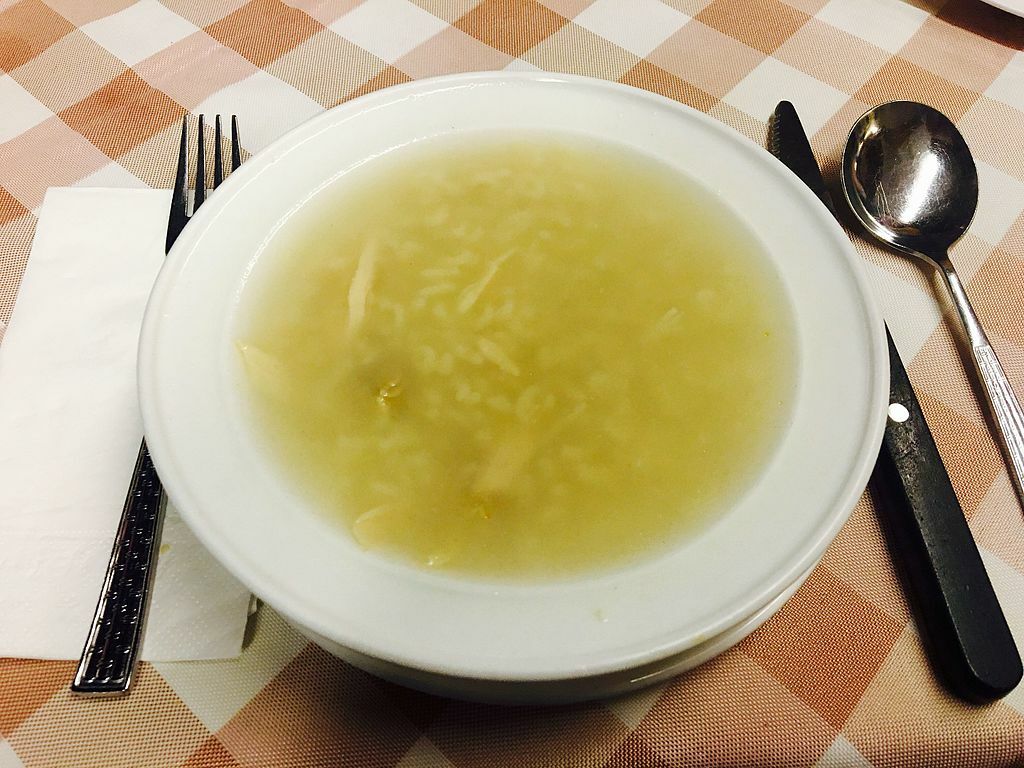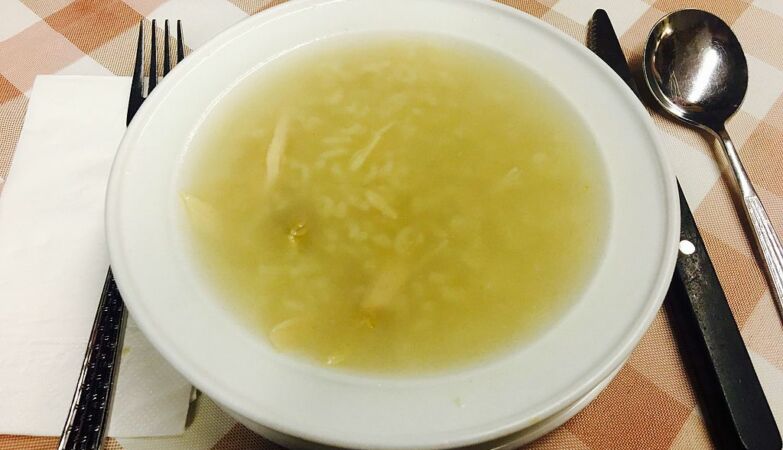Zhengzhou / Wikimedia
Preparing a bowl of chicken soup for a loved one when they are sick has been a common practice around the world for centuries.
Today, generations of almost every culture swear by the benefits of chicken soup.
Chicken soup as a remedy can be traced back to 60 AD and Pedanius Dioscorides, a military surgeon who served under the Roman Emperor Nero, and whose five-volume medical encyclopedia was consulted by healers for more than a millennium. But the origins of chicken soup go back thousands of years. To ancient China.
So, as cold and flu season reaches its peak, it’s worth asking: Is there any science to support the belief that it helps? Or does chicken soup just work as a snack? Comfortable placeboThat is, providing psychological benefits while we are sick without actual therapeutic benefit?
What gives soup its distinctive flavor is umami – the fifth category of taste sensations, along with sweet, salty, sour and bitter. It is often described as containing “fat“.
Improve appetite and improve digestion
This makes sense, because amino acids are the building blocks of proteins Amino acid glutamate It is found in foods with an umami flavour. Not all umami foods are meat or poultry; It also contains cheese, mushrooms, miso, and soy sauce.
Studies show that flavor, ultimately, is key to chicken soup’s healing properties. In cases of patients with upper respiratory diseases, many of them suddenly eat less or not at all.
This happens because acute diseases trigger an inflammatory response that can occur Reduce your appetite. Not wanting to eat means you’re unlikely to get the nutrition you need, which isn’t a great recipe for immune health and recovery from illness.
But evidence suggests that the umami flavor in chicken soup may help stimulate appetite further. Participants in one study said they felt hungrier after their first taste of a soup with an umami flavor added by the researchers.
Other studies say umami can, too Improving the digestion of nutrients. Once our brains sense umami through the taste receptors on our tongues, our bodies prepare our digestive tracts to absorb the protein more easily.
This can reduce digestive symptoms, which many people experience when they are sick. Although most people do not associate upper respiratory infections with gastrointestinal symptoms, research in children has found that the influenza virus Increased abdominal painSymptoms of nausea, vomiting and diarrhea.
It may reduce inflammation and nasal congestion
Inflammation is part of the body’s normal response to injury or disease. Inflammation occurs when white blood cells migrate to inflamed tissue to aid healing. When this inflammatory process occurs in the upper respiratory tract, it leads to symptoms of colds and flu, such as a stuffy or runny nose, Sneezing, coughing, and thick mucus.
On the other hand, decreased white blood cell activity in the nasal passages can reduce inflammation. Interestingly, research shows that chicken soup can actually do this Reducing the number of white blood cells Which is transmitted to inflamed tissues by directly inhibiting the ability of neutrophils, a type of white blood cell, to move to inflamed tissues.
Main components
To truly understand the soothing and healing effects of chicken soup, it is important to consider the ingredients of the soup. Not all chicken soup is packed with nutritious healing properties.
For example, ultra-processed canned versions of chicken soup, with or without noodles, Lack of many antioxidants Found in homemade versions. Most canned versions of chicken soup are virtually devoid of delicious vegetables.
The essential nutrients in homemade versions of soup are what distinguishes them from canned versions. Chicken provides the body with a complete source of protein to fight infections. Availability of vegetables a A wide range of vitaminsMinerals and antioxidants. Pasta provides an easily digestible source of carbohydrates that your body uses for energy and recovery.
Even the heat of chicken soup can help. Drinking the liquid and inhaling the vapors heats up the nasal and respiratory passages, loosening the thick mucus that often accompanies respiratory illnesses. Compared to hot water alone, studies indicate that… Chicken soup is more effective In loosening mucus.
Herbs and spices sometimes used in chicken soup, such as pepper and garlic, also thin mucus. Broth, which contains water and electrolytes, helps treat dehydration.
So, to maximize the health benefits of chicken soup, it’s best to use the homemade variety, which can be prepared with carrots, celery, fresh garlic, herbs and spices, to name a few of the ingredients.
In short, the latest science suggests that chicken soup — while not an absolute cure for colds and flu — actually helps with recovery. it seems that Grandma was right again.

“Wannabe internet buff. Future teen idol. Hardcore zombie guru. Gamer. Avid creator. Entrepreneur. Bacon ninja.”


